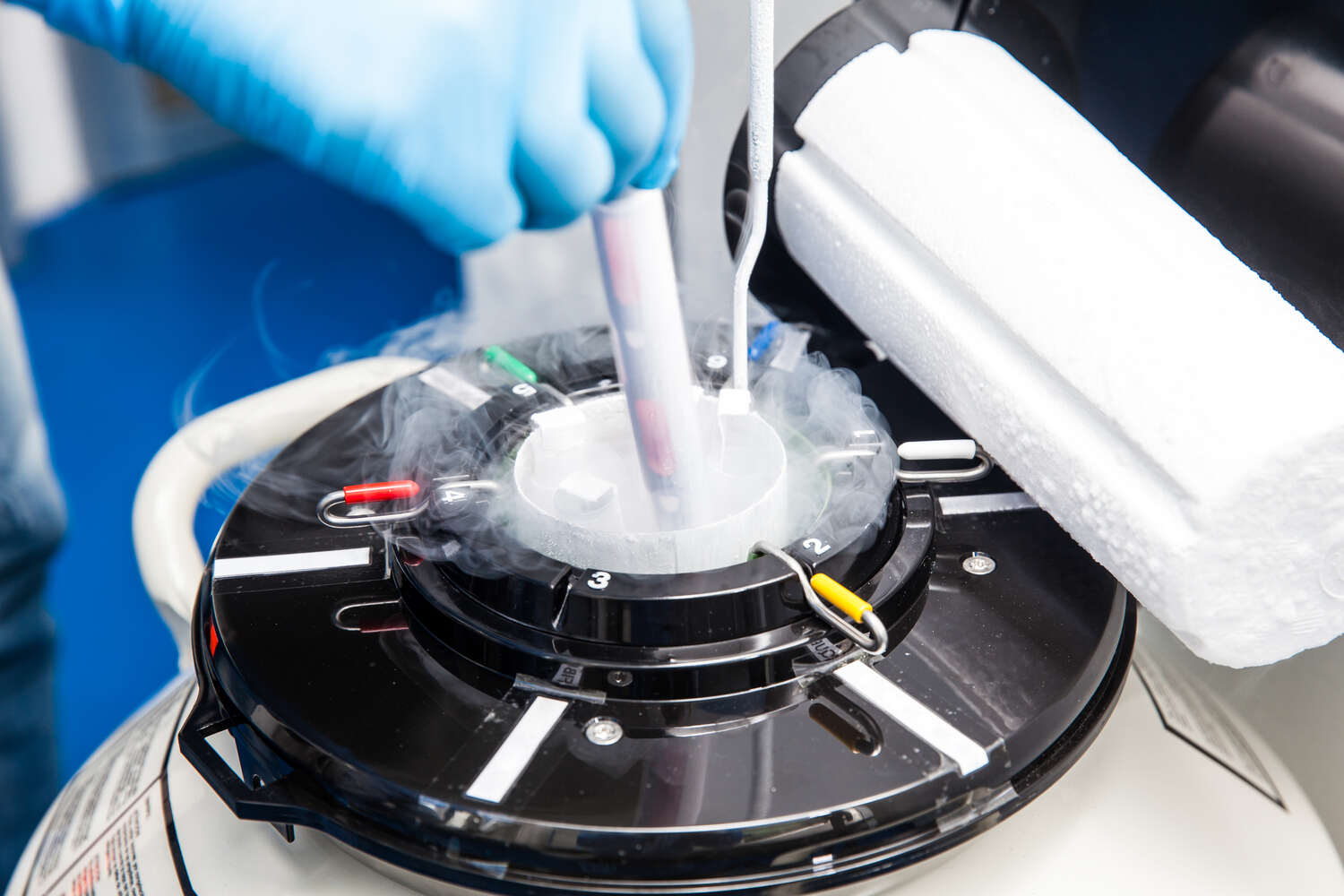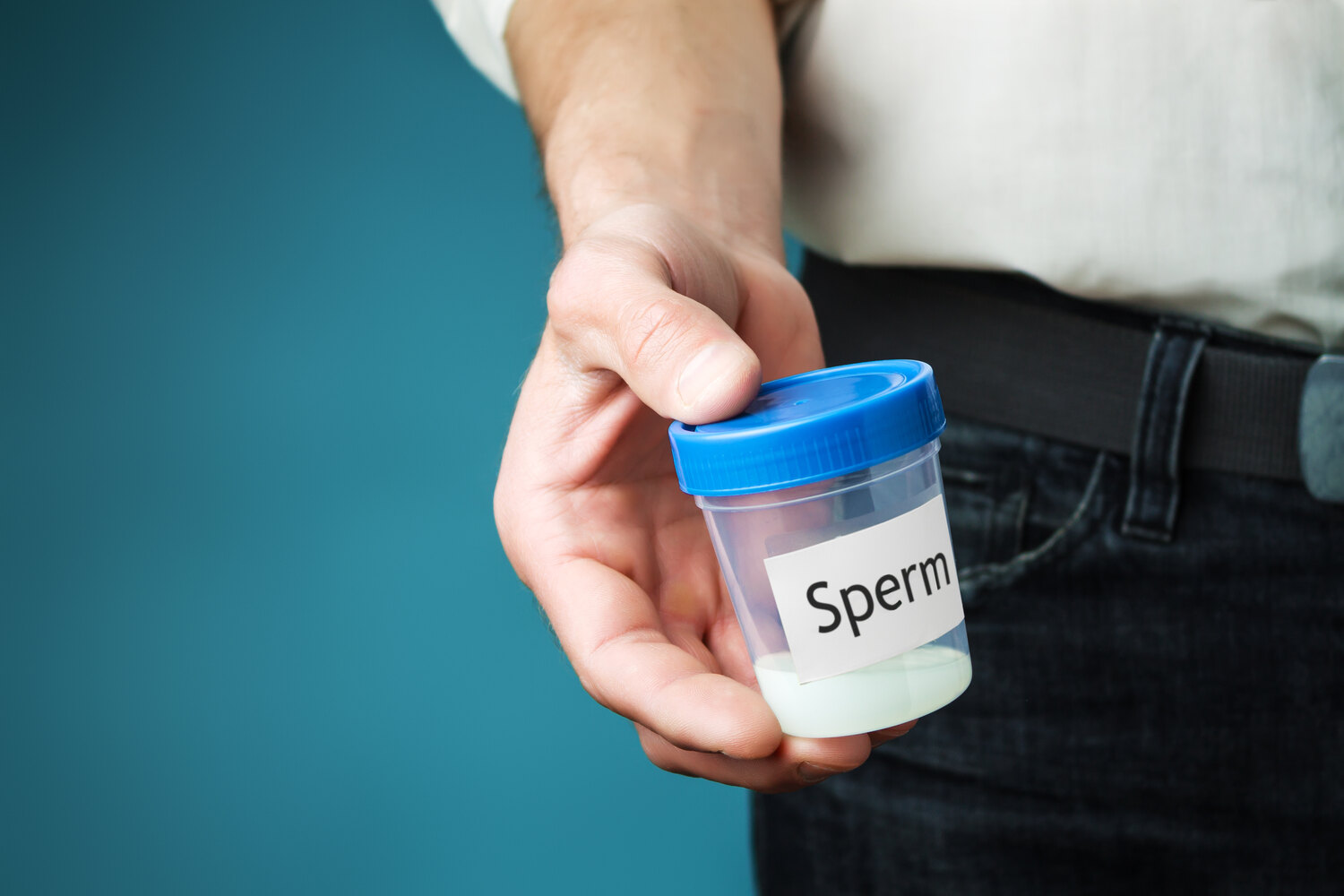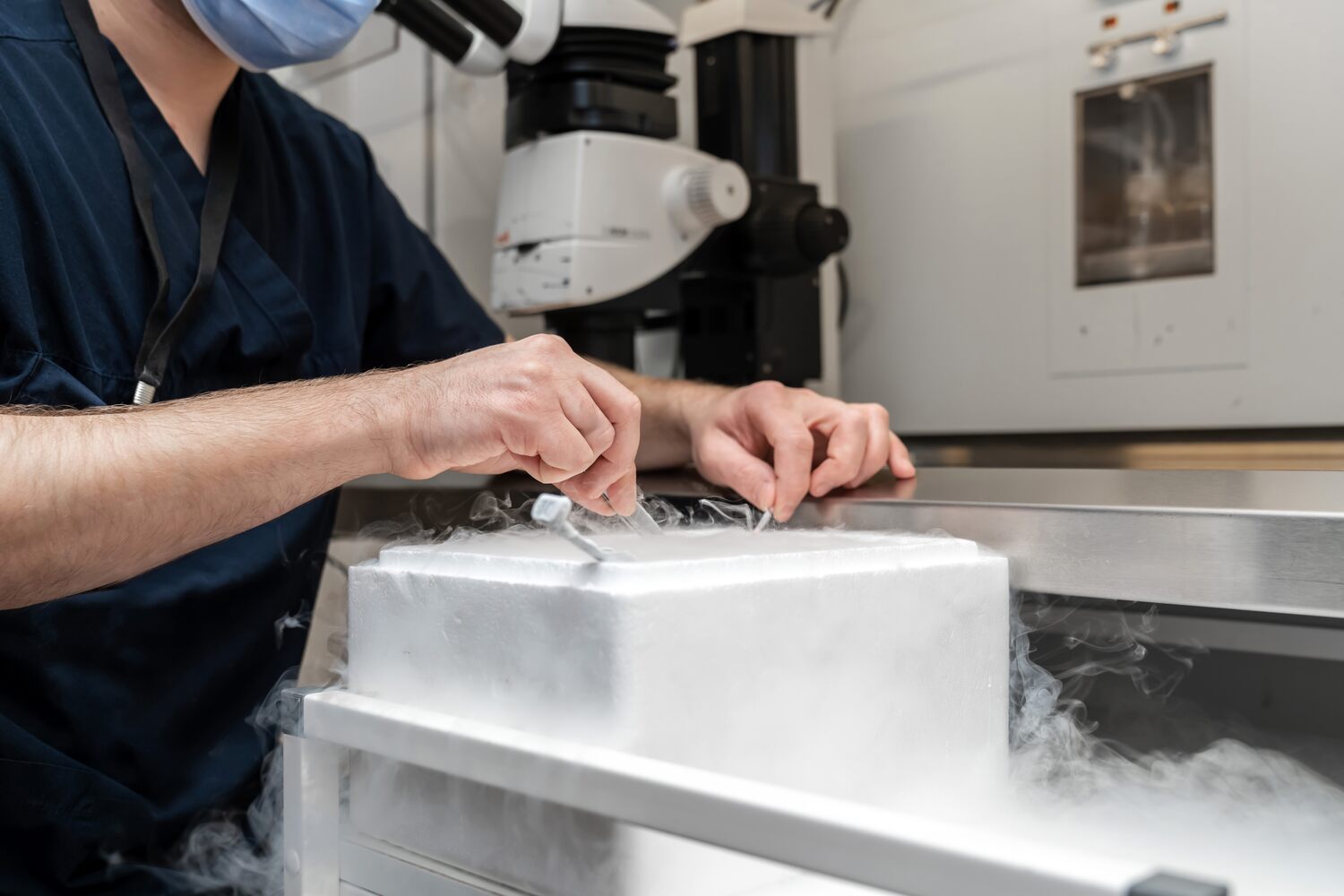
Having biological children is one of the biggest dreams a couple can have. Everyone wants to enjoy the life of parenthood. Nowadays, we see many couples around us struggling to conceive. Thankfully, with the continuing development in the field of science and technology, conceiving through assisted reproductive methods has become a boon to all those struggling to have babies. Freezing sperm for future fertility is one such advancement in the field of medicine that has been a game changer.
IVF and IUI are two techniques that have helped millions of childless couples conceive. This has become possible because of certain techniques that allow the freezing of eggs, sperm or embryos. So what exactly is sperm freezing? When and who can opt for it? And what is the process?
In This Article
- What is Sperm Freezing?
- Who All Are Suggested to Freeze Sperm?
- Benefits of Sperm Freezing
- Why is Sperm Freezing Suggested Before IVF Treatments?
- Where Can You Freeze Your Sperm?
- Sperm Freezing Process
- Are There Any Risks Involved in Freezing Sperm?
- How Much Does Sperm Freezing Cost?
- How Long Can You Freeze Sperm?
- FAQ’s
What is Sperm Freezing?
Sperm freezing is a procedure where a person can collect his semen and store it in sperm banks by freezing them in order to use them in the future. It is also called Sperm banking or cryopreservation. This way, the sperm are available for future use or for donating. Sperm freezing is beneficial for couples who wish to conceive in later years and those undergoing any medical treatment.
There are many ways by which sperm preservation takes place. Survival of human spermatozoa’s first observations were recorded in the scientific literature by Mantegazza in 1866[1]. Since then, better techniques are evolving in the field of human fertility.
Who All Are Suggested to Freeze Sperm?

Sperm freezing can be beneficial to several people in many ways. Preservation of one’s fertility is vital. It can be beneficial to men in the following categories.
1. People with Cancer
Males with the diagnosis of the deadly disease or those who are undergoing treatment for the same are eligible to preserve their sperms for future use. Cryopreservation of sperm is most common in people with cancer. Some types of cancers such as testicular cancers, Hodgkin’s lymphoma and leukemia may indirectly affect male fertility.
Testicular cancer can cause a significant fall in sperm count as an initial presentation, and its treatment further adds up to the damage by affecting the sperm’s quality [2].
Radiotherapy and chemotherapy lead to an impairment in fertility by affecting the process of spermatogenesis.[3]
2. People in High-risk Jobs
Some people work in sectors that require them to work in an environment surrounded by radiation or harmful chemicals. Exposure to harmful chemicals and workplace toxins affects male reproductive health [4].
3. Age-related Issues
The quality of sperm reduces with age. Hence, to preserve fertility, many men opt for sperm freezing to have biological children. Some men marry late, so this is a good option for them too. More the paternal age, the higher the chances of genetic syndromes in the offspring.
A decrease in fertility is also common with ageing. One way to prevent this is by freezing sperm at a young age [5].
4. Low Sperm Count
Men with decreased sperm counts can opt for the freezing procedure, as it acts as a backup for use in planning pregnancies in the future.
5. Before Vasectomy
Men undergoing vasectomy procedures can freeze their semen samples well in advance if they wish to have a pregnancy in the future.
Benefits of Sperm Freezing
Banking one’s sperm can help preserve fertility. The advantages of sperm freezing are as follows
- Freezing helps in planning for future pregnancy without any compromise in sperm quality.
- Sperm preservation at a younger age is less likely to cause certain genetic conditions associated with paternal age.
- It is beneficial to career-oriented couples who don’t want to compromise their careers and wish to become parents in the future.
- Preserved sperm can be used in assisted reproductive techniques like IUI, IVF and ICSI.
- It’s an excellent option for men who travel a lot for work. The sperm in storage banks can be used to fertilize the partner during the fertile days of ovulation.
Why is Sperm Freezing Suggested Before IVF Treatments?

IVF or in vitro fertilization, is an assisted reproductive technique where mature eggs are collected from the ovary and are then allowed to be fertilized by sperm in the laboratory under optimal conditions. This leads to the production of embryos. This requires either freshly collected semen samples or frozen sperm.
Freezing sperm is a convenient option, as they are readily available whenever the eggs are retrieved from the partner. The ideal quantity required for an IVF procedure is already taken care of by freezing the sample beforehand.
Cryopreservation helps preserve sperm for a longer time without losing viability. Studies suggest that men with impaired fertility or sterility can go for long-term semen storage early in life, so that they have ample time to make appropriate family planning decisions [6].
Where Can You Freeze Your Sperm?
Sperm can be preserved by freezing them in laboratories under proper quality control measures. These storage banks are referred to as cryobanks, semen banks or sperm banks. The optimal temperature for sperm storage is minus 198 degrees Celsius.
Sperm Freezing Process

The process starts after completing all necessary health checks for STIs after getting the necessary consents. Abstinence from any sexual activity for 2-3 days is a must. The actual process then starts, which is as follows:
1. The sample is collected through masturbation in a sterile container which is properly labeled. The best place to collect the sample is at the sperm bank or the fertility clinic. If the person is uncomfortable, then the sample can be collected at home. Home collection must reach the laboratory within an hour of collection.
2. The technician will check the sample for quality and count. Following this, they divide and store the samples in vials under -196 degrees centigrade along with various cryoprotectant agents. The freezing process usually takes around 3 hours.
3. The next day, one of the vials is taken out and allowed to thaw. This is to assure whether the sperms are able to withstand the freezing process.
4. If the sample does not meet the criteria, the person will need to repeat the collection process after a few weeks.
On repeat collection, if the count and quality are still low then the doctor will advise direct extraction from the testicles through a surgical process. The extracted sperm are then analyzed and frozen.
The retrieval rate is as high as 100% in men suffering from low sperm count due to obstructive reasons [7]
Are There Any Risks Involved in Freezing Sperm?
Sperm freezing in general is a low-risk procedure. The collection is an easy process unless there’s a need for surgical retrieval of sperm, which makes it a bit risky.
One major concern that arises during the procedure is that sometimes sperm don’t survive the process of freezing and thawing.
How Much Does Sperm Freezing Cost?

Sperm banking charges differ from bank to bank.
The average cost of freezing sperm is inexpensive and includes the charges for testing, freezing and preservation of semen samples. Annual charges are there for preservation of samples.
If freezing is to be done for medical reasons, it might be covered under medical insurance depending on the insurance company’s policies.
If the couple requires additional treatment like IUI and IVF then additional charges are added which makes it a bit expensive. The longer the duration of storage, the more expensive it gets.
How Long Can You Freeze Sperm?
Sperm can last indefinitely when stored under optimal temperature conditions. Sperm banks equipped with liquid nitrogen make a perfect environment for the sperm to survive for several years. One of the scientific report shows that a sperm sample stored for about 40 years resulted in a successful pregnancy through IVF.[8]
Freezing sperm for future fertility becomes quite useful in couples dealing with difficulty conceiving. Continued medical research and recent advances in medical technology adds up to the success and viability of sperm freezing. It has succeeded in providing a ray of hope to people struggling with cancer and other medical issues. If you are planning to go ahead with the procedure, then talk to your healthcare provider about it. In the end the decision to go ahead with this lies with you and your partner.
FAQ’s
1. Which Men Are Suggested Not to Freeze Their Sperm?
Men suffering from known genetic diseases must refrain from freezing their sperm as there will be high chances of disease transmission in the offspring. One such disease is cystic fibrosis.
2. At What Age Should I Freeze my Sperm?
There’s no such standardized age for freezing of sperm. But ideally it should be done before the age of 35 years and no later than 45 years of age.
3. Does Freezing Sperm Affect The Baby?
According to studies, there has been no evidence of any health issues in babies born using frozen sperm.
References
- Report of Four Cases – ScienceDirecthttps://www.sciencedirect.com/science/article/pii/S0015028216318027?via%3Dihub
- Fertility considerations in men with testicular cancer – PMChttps://www.ncbi.nlm.nih.gov/pmc/articles/PMC6995852/
- >Male infertility in cancer patients: Review of the literature – PubMedhttps://pubmed.ncbi.nlm.nih.gov/20202000/
- Men at risk: occupation and male infertility – ScienceDirecthttps://www.sciencedirect.com/science/article/pii/S0015028203011889
- Social sperm freezing | Human Reproduction | Oxford Academic https://academic.oup.com/humrep/article/36/4/833/6104812
- Successful sperm storage for 28 years – ScienceDirecthttps://www.sciencedirect.com/science/article/abs/pii/S0015028205014366
- Cryopreservation of testicular and epididymal sperm: techniques and clinical outcomes of assisted conception – PMChttps://www.ncbi.nlm.nih.gov/pmc/articles/PMC3583152/

